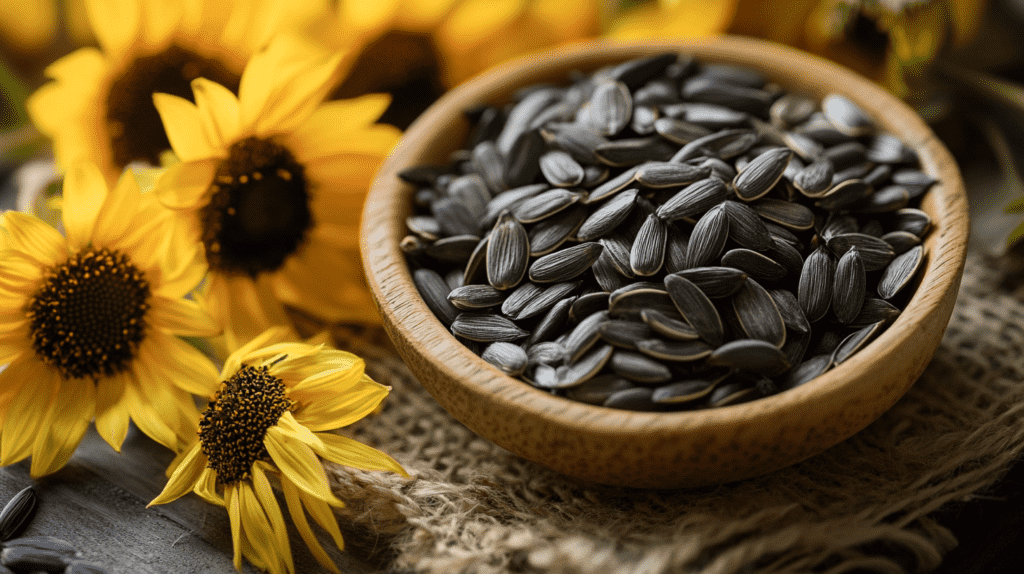10 Fascinating Facts About Sunflowers
Sunflowers have long held a special place in the hearts of people around the globe. With their striking golden petals and towering presence, they symbolize joy and optimism. Yet, there’s much more to these incredible plants than meets the eye. From their unique structures to their cultural significance, sunflowers are packed with fascinating facts that highlight their importance in nature and human life. Join us as we explore a deeper understanding of sunflowers and uncover why they are truly remarkable.
The Intricate Structure of Sunflowers
At first glance, a sunflower may appear to be a single, large flower. However, it is actually a complex arrangement of several hundred tiny flowers. The outer petals, known as ray flowers, serve to attract pollinators with their bright yellow hue. In the center of the sunflower lies a dense cluster of small flowers called disc flowers. Each disc flower has the potential to develop into a seed, resulting in the sunflower’s characteristic seed head. This composite structure not only enhances the sunflower’s beauty but also plays a crucial role in its reproduction.
Heliotropism: Nature’s Sun-Tracking Marvel
One of the most captivating features of young sunflowers is their ability to follow the sun’s movement across the sky, a phenomenon known as heliotropism. During their early growth stages, sunflower heads rotate from east to west throughout the day, maximizing their exposure to sunlight.
This behavior is essential for photosynthesis, allowing the plants to harness energy more efficiently. Interestingly, as sunflowers mature, they tend to settle into a fixed position facing east, which helps attract pollinators like bees and butterflies that are active during morning hours.
Sunflower Seeds: Nutritional Powerhouses

The seeds produced by sunflowers are not only delicious but also packed with nutrition. Sunflower seeds are an excellent source of vitamins A, B3, and C, along with essential minerals such as magnesium, selenium, and iron. They can be enjoyed in various forms—raw for a nutritious snack, roasted for added flavor, or even ground into sunflower seed butter as an alternative to peanut butter. Their high protein and healthy fat content make them a popular choice among health-conscious consumers and athletes alike.
Nature’s Clean-Up Crew: Radiation Absorption

In an unexpected twist, sunflowers have proven to be valuable allies in environmental clean-up efforts. Researchers have discovered that these plants can absorb radioactive elements from contaminated soil, making them useful in areas affected by nuclear disasters. This ability not only helps restore ecosystems but also showcases the sunflower’s remarkable resilience and adaptability. By planting sunflowers in contaminated sites, scientists can harness their natural capabilities to mitigate environmental damage.
Record-Breaking Heights: The Tallest Sunflower
Sunflowers are known for their impressive heights, with some varieties reaching extraordinary sizes. The tallest sunflower on record was grown by Hans-Peter Schiffer in Germany, measuring an astounding 30 feet tall! This remarkable feat not only highlights the sunflower’s growth potential but also challenges gardeners and enthusiasts to push the boundaries of what is possible in cultivation. Such record-breaking plants serve as a testament to the sunflower’s robust nature and ability to thrive under optimal conditions.
Space Travel: Sunflowers in Microgravity
In a groundbreaking experiment, sunflowers have even made their way into space! In 2012, astronaut Don Pettit grew sunflowers aboard the International Space Station (ISS) as part of research on plant growth in microgravity. This unique study provided valuable insights into how plants adapt to different environments and how they might be cultivated for food in long-duration space missions.
The successful growth of sunflowers in space is a significant step forward in understanding plant biology and its potential applications for future space exploration.
Artistic Inspiration: Sunflowers in Culture
Sunflowers have inspired countless artists throughout history, most notably Vincent van Gogh, whose series of sunflower paintings continues to resonate with audiences today. These vibrant artworks capture the essence of sunflowers and their ability to evoke feelings of warmth and happiness.
Additionally, sunflowers have been featured in various cultural expressions worldwide—from folklore to literature—where they often symbolize beauty, loyalty, and devotion. This rich artistic heritage underscores the sunflower’s impact beyond mere aesthetics.
Cultural Significance: More Than Just a Flower
In many cultures, sunflowers hold deep symbolic meaning. They are often associated with happiness, warmth, and longevity. In some traditions, sunflowers are viewed as symbols of loyalty and devotion due to their unwavering ability to turn toward the sun.
This cultural significance has led to sunflowers being used in celebrations and ceremonies around the world, further solidifying their status as beloved flowers.
Fast Growth Rate: Nature’s Quick Bloomers
Sunflowers are among the fastest-growing plants available to gardeners. With some varieties maturing in as little as 100 days from seed to bloom, they offer a quick reward for those eager to enjoy vibrant flowers in their gardens. This rapid growth makes them an ideal choice for both novice and experienced gardeners looking to create stunning displays without waiting long for results.
Multifaceted Uses: Beyond Beauty

The versatility of sunflowers extends far beyond their ornamental value. They serve numerous practical purposes, including food production, medicinal uses, and even biofuel generation. Sunflower oil is a popular cooking oil known for its light flavor and high smoke point.
Additionally, sunflower extracts have been used in traditional medicine for various ailments due to their anti-inflammatory properties. The seeds can also be processed into biofuels, highlighting the sunflower’s role as an eco-friendly energy source.
In conclusion, sunflowers are truly remarkable plants that encapsulate beauty, utility, and resilience. From their unique structural composition and intriguing growth behaviors to their cultural significance and practical applications, sunflowers continue to captivate and inspire people around the world.
Whether you’re an artist drawing inspiration from their vibrant colors or a gardener nurturing them in your backyard, there’s no denying that sunflowers have earned their place as one of nature’s most cherished treasures.





